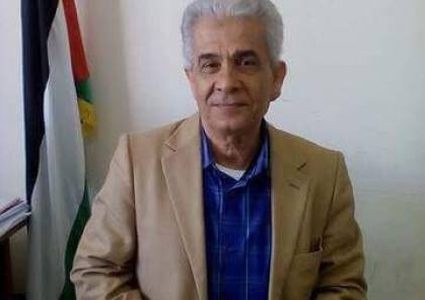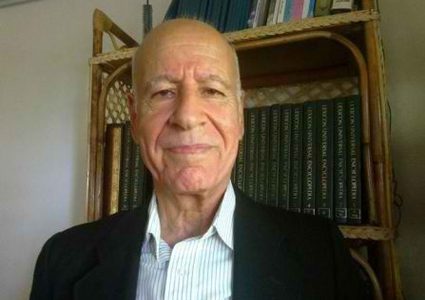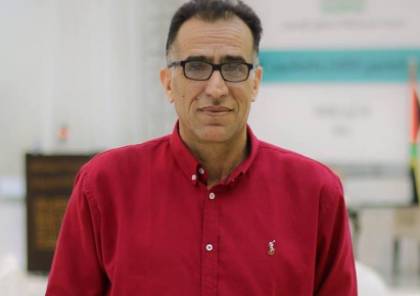Gaza: Is it due for a new lease on life?
Al-Khamisa News Network - Gaza

Naji Sadiq Sharab
The two-year war has come to a halt after destroying every component of life in the smallest and most densely populated place in the world — an area no larger than 360 square kilometres that is home to two and a half million people. Poverty among them reaches 50% and unemployment exceeds 70%. After a war that claimed more than 70,000 dead, mostly children, women and the elderly, and left over 200,000 wounded, disabled or unable to live independently — becoming a burden for any new administration — the fighting has stopped but not ended, despite talk of a Trump initiative for permanent peace without clarity on how that peace will be achieved. A new life has its requirements, conditions and constraints. These conditions are governed by factors related to Israel, which has chosen war in its relations with Gaza; by who governs Gaza — Hamas or the legitimate Palestinian Authority; and by regional and international factors. The war’s repercussions have extended beyond local boundaries to reach global capitals and shape the international system, and they have affected the Arab region and the Middle East, opening the door to the prospect of perpetual war. War is an extension of politics, and politics are shaped by the outcome of war and the new political reality. When politics fail, war follows; when war begins, politics becomes the way out and the savior. As the German strategic thinker Carl von Clausewitz wrote in his book On War: war is the continuation of politics by other means. When other means fail to resolve disputes, states resort to war — as has been the case in Gaza.
Politics failed to achieve peace, establish a Palestinian state, end Israeli occupation and lift the blockade on Gaza, leading to the longest war the region has known — an asymmetric conflict between Israel, a state backed by the world’s most powerful country, the United States, and Hamas and resistance factions wielding conventional weapons on territory unsuited to war and controlled at every access point by Israel. Despite this, Israel has not achieved its declared objectives so far, nor has Hamas achieved its aims and priorities for governance and survival. It is a zero-sum war, yet one with prolonged regional and international ramifications. Israel today suffers international isolation and has lost the ethical and democratic claims it once boasted; Arab states have abandoned peace as an alternative to war without a solution that centers on the establishment of a Palestinian state and an end to occupation. Gaza’s importance is that it is the engine and broad gateway to the permanent peace mentioned in the Trump initiative. Its foundation is the reconstruction of life in Gaza — and reconstruction here is not only about rebuilding structures, but, more importantly, about rebuilding the Palestinian person in Gaza on new bases, standards and values like other peoples of the world. The new life must address Gaza’s environmental and political determinants and must take place on Gaza’s soil, not elsewhere — hence the rejection of the displacement that Israel sought through its war.
The new life requires a new educational and health infrastructure at an advanced level and a system of education based on construction, peace, coexistence and the renunciation of violence, as well as a stable economic structure. Given its geopolitical and demographic characteristics, Gaza is not suited to options of war and force; as is often said, Gaza is a trading place — by nature and by its people Gaza is developmental, civic and coexistence-oriented. Throughout its history Gaza has offered a refined model of coexistence between its Muslim residents and its Christian Copts, with church and mosque side by side. This model must be restored. The problem for the new life lies with Israel — its policies, military choices and the ongoing siege of Gaza. The new model of life in Gaza, as I have indicated, prioritizes a developmental civic model and comprehensive coexistence, even in relation to Israel, which requires approaches to dialogue, coexistence and the rejection of the violence and hatred deepened by the two-year war and by Israel’s extreme-right government. Gaza, in turn, should be governed by a civil administration.
To achieve this goal and enable this life, all seeds of hatred, killing and revenge must be uprooted by resolving the Palestinian conflict at its core — ending the occupation and treating the Palestinian person based on an approach of equal rights. Discussing this new life is the approach to comprehensive, permanent peace in the region and the real test of all proposed initiatives. The extent to which Gaza’s residents feel their dignity and humanity will determine the attainment and establishment of this new life, which is built in minds and in an intellectual and ideological framework that calls for construction and life. This is Gaza’s life throughout its historical stages as a crossroads of history, a meeting place of cultures, known for coexistence and for the high educational attainment of its people. Another issue facing the new life, which Hamas and all factions must understand, is that reconstruction today is the priority and cannot take place alongside weapons; disarming Gaza is conditional upon its reconstruction and on building the new human being there — the person who can produce scholars and innovators everywhere. It is sufficient to cite the example of Dr. Omar Yaghi, a professor of chemistry who earned the Nobel Prize in Chemistry, born in Gaza. Ultimately, this war has narrowed the choices to two: either war and complete annihilation, or reconstruction, development and the new human being.






